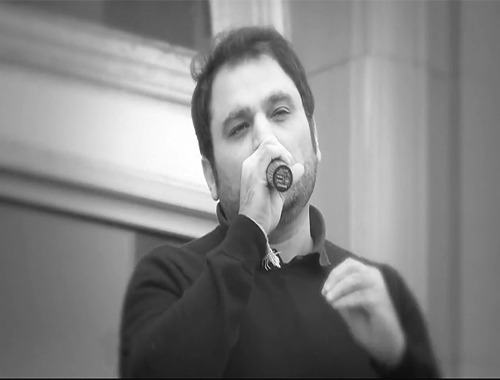How to Purge Soul of these Pollutions
- Details
- Hits: 1987
How to Purge Soul of these Pollutions
The principles of Islamic education aim at the purification of man and the purging of his soul from pollutions. Naturally it is not easy to eradicate an evil trait, especially if it has taken root and already become a habit. Anyhow, this mysterious being known as man abounds in capabilities. Even to change a habit is not an impossible thing for him. It is not only possible but practicable also. At the most it is necessary that for this purpose all the potentialities of man should be harnessed and all the environmental conditions made favorable.
First of all man should take the help of his own inner self. For a successful self‑reform there are two things which are important: one is the correct attitude which may give a new turn to his desires, and the other is a strong will. A strong will and surging enthusiasm are necessary to make and implement a resolute decision to bring about changes. If a strong will is accompanied by correct attitude the process of reform is bound to begin as the Qur'an says: "Allah never changes the condition of a people unless they change what is in their hearts". (Surah al‑Ra'd, 13:11).
That is why Islam holds that self‑consciousness and a strong will play an important role in self‑reform.
Imam al Sadiq (P) has said:
“You are your own physician. You know your disease as well as its cure. Now it is to be seen how far you are prepared to rise to the occasion and take care of yourself". He also said: "Allah does not allow him to be consigned to Hell who always exercises self‑control, whether he is in the state of enthusiasm, fear, passion, pleasure or anger.”
A self‑controlling man who can always think aright and can take a correct decision and does not succumb to agitated emotions, transitory passions or old habits can keep himself safe from all troubles and can save himself from the fire of Hell.
Islam does not say that you should only suggest to others to do good things, nor does it say that you should compel anyone. It tells us to do something to awaken the self-consiousness of man and to eradicate his ignorance and narrow‑mindedness with a view to enable him to think aright and take an independent decision. Imam al Sadiq (P) has said: "The enemy (devil) will mount on the neck of a person who is neither blessed with self‑preaching nor has a companion to guide him".
Hence freedom and honor of man depend on self-criticism and having an inner adviser.
The Qur'an swears by this inner faculty of self‑criticism which is necessary for self‑building. It says: "I swear by the Day of Resurrection, and I swear by the self reproaching soul". (Surah al‑Qiyamah, 1 ‑ 2).
Other verses of the Qur'an concerning self‑building show that this Divine Book regards self‑criticism as one of the cornerstones of self‑making.
Islam wants the feelings and conditions of man to be under his control and in his service.
Imam al Sadiq (P) says:
"Turn your heart into a virtuous friend and a dutiful son and turn your knowledge into a father to be obeyed by heart. Regard pollution of your soul as your enemy against whom you are fighting".
Piety
Such a man is pious. He is careful. He observes the restraints imposed on him by his love for Allah and truth. He enjoys complete freedom but is subservient to Allah. It is this subservience which protects him from the slavery of others. Before doing anything he first thinks whether his action will please Allah or will displease Him.
He can put up with the displeasure of anyone else, but the displeasure of Allah is unbearable for him. He abstains from everything that may displease Him. This abstinence and abiding by the due restraints constitute piety.
A pious person cannot be compelled to commit a sin by any threat nor can he be allured by money, power or lust. The role of piety is so important that the Qur'an has regarded it the only criterion of man's value:
"The noblest of you before Allah is the most pious of you". (Surah al‑Hujurat, 49:13).
Nobility of man depends on his purity and self‑control. He who is the more pious is the more noble.
There exist many verses and traditions on the subject of piety. We quote below the translation of a portion of the well‑known sermon delivered by Imam Ali (P) on piety at the request of one of his companions named Hammam:
"The pious are the virtuous people. They speak truth. Their dress is moderate. They walk unpretentiously. They refrain from what Allah has forbidden them. They listen attentively to enlightening useful information. They are as hopeful in distress as in prosperity. Allah has so manifested Himself in the depth of their hearts that they attach no importance to anything else.
A pious man is staunch in his faith. He is gentle and far‑sighted. His faith is strong and accompanied by conviction. He yearns for knowledge. He is independent, but moderate. He is submissive while worshipping. He maintains his dignity even in poverty. He shows patience in hardship. He seeks lawful means of livelihood. He is full of enthusiasm for the right path. He keeps totally clear of avarice. He has no objectionable desires. He keeps his anger under his control. All expect him to be good to them; none fears that he will do him any harm. He does not speak evil. He talks softly. He does not do anything objectionable. All he does is desirable. He is calm and composed in disturbed conditions. If he is well‑off, he is thankful. He does not commit a sin for the sake of a friend. He never offends others by calling names or defaming them. He does not do wrong to his neighbor. He suffers hardships, but others have nothing to fear of him. He strives for gaining salvation in the Hereafter, but does not harm anybody. If he keeps away from some one, that is because he is care‑free. If he comes close to anyone, that is because of his love and kindness. He does not keep himself away from anyone because of vanity, nor does he befriend anyone to cheat him". (Nahj‑al‑Balaghah, Extract from sermon 191 ‑ This master‑piece work of Imam Ali entitled Peak of Eloquence is published by Islamic Seminary).
Strengthening of will‑power
From the foregoing discussion we come to the conclusion that man in his evolutionary movement should first of all draw strength from his inner force, the blooming of which mostly depends on two things: one of them being his will‑power and the other his self‑consciousness and broad‑mindedness.
To strengthen his will, he should undertake necessary practice and should make use of suitable exercises. It is one of the important and valuable roles of every dogmatic school to turn men into responsible individuals by inculcating in them a firm habit of abiding by the principles and rules of correct life which lend support to their will‑power so that they may not succumb to selfishness, passions and the tendency of lack of restraint. The Islamic injunctions of offering prayers five times a day, taking care of the cleanliness of the body and the clothes, ensuring that the place where prayers are offered is not a misappropriated one, the observance of the direction of the qiblah and the special month‑long programme of keeping fast, are all intended to give man a sense of responsibility and to provide a firm basis for the regularity of his life.
Relation between fast and strengthening of will‑power:
We already know that it is obligatory on all adult and sane Muslims., men and women, provided they are not traveling, ill, too old or infirm, to keep fast during the month of Ramadhan, that is to abstain from eating, drinking, coition, plunging head into water, swallowing thick airborne dust and all other acts invalidating fast.
This holding out against passions, enduring hunger and thirst and resisting sexual desire awaken and arouse the dormant and unblooming inner force, provide an exercise in self‑control and enable man to resist and not to succumb easily to the base desires like the outburst of lust, anger and selfishness.
Man is always subject to being over‑whelmed by a number of misleading desires such as acquiring wealth by unlawful means, indulgence in illicit sexual contacts, licentiousness, succumbing to temptations etc.
There are many desires, passions and temptations which often flare up and give a blow to the dignity and position of man. It is, however, possible that he may increase his power of resistance and self‑control, show perseverance against every evil, not succumb to every temptation and not respond to every call. At the time of the outburst of an unlawful desire he should exercise self‑restraint, use his common sense, look into the future and keep the final result in view so that he may not sacrifice himself to a transient passion.
To develop this resisting power gradually one must have an occasion to fight against his desires and personal pleasures. Fast provides such an opportunity. It renders the required help in the development of this resistance. The Qur'an describes the creative role of the fast in these words: "Believers, fasting is prescribed for you as it was prescribed for those who have gone before you, so that you may practice piety (and remain firm against sins and slips)". (Surah al‑Baqarah, 2:183).
Return to the right path ‑ Repentance
A sinner ‑gets polluted with his sin. He is on the verge of fall. All the same, he can start fighting against his bad habit. It is he who has so far been committing a sinful act and it is he who should now take a decision to change himself.
Man has the potentiality of returning to the right path of purity. Allah has also kept the way of return open to him. He never turns a sinner from His Door. This invitation of Allah, the Compassionate, is always open:
"Say: Slaves of Allah! You who have committed excess against your own souls, do not despair of the mercy of Allah. Indeed Allah forgives all sins (that you have committed heedlessly and have now sincerely repented of them). Surely Allah is the Forgiving, the Merciful". (Surah al‑Zumar, 39:53).
This call for repentance and the possibility of being forgiven are very encouraging, and inspire one to reform himself at the earliest and return to the right path. They are not meant to lethargize.
Some people are under the impression that the way to repentance being always open, one can continue to commit sins so long as he likes till he eventually avails of an opportunity to repent. Had it been so, the promise of granting pardon would have been tantamount to the inducement to be permanently plunged in sins. The fact is that the more one gets habituated to sin, the weaker his power of decision becomes. His soul gets gloomier, and as a result thereof his desire to return to the right path totally dies out.
Furthermore, how can one know that the opportunity to return will continue to exist? As the time of the death of any person is not known, who knows how long he will live and what will be his future circumstances?
True repentance means that a person should feel ashamed of what he has done and should be keen to reform himself.
He should take the earliest practical steps to treat himself in the same way as a patient afflicted by poisoning or a bacterial disease should. If such a patient instead of undergoing a full course of treatment for poisoning or taking antibacterial injections immediately, puts off his treatment thinking that some sort of cure is after all existing, his disease may become chronic and eventually incurable.
The holy Prophet has said: "Every disease has a cure and the cure of the sins is repentance".
Imam al Sadiq (P) has said:
"As soon as a believer commits a sin, Allah grants him a respite of seven hours. If he asks for pardon and repents within this period, his sin is not written against him. But if this period lapses and he does not repent, the sin is recorded against him".
The holy Prophet was asked as to who were the good people? He said: "Those who feel happy when they do something good. If they commit a sin, they ask for pardon and repent. If anyone renders them any service, they are thankful to him. If they are afflicted by a distress, they endure it with patience. If they are annoyed with anyone, they forgive him".
If a man feels repentant about a sin, it means that his faith is alive, and he still distinguishes between what is good and what is bad. If he feels happy at a good act and feels uneasy about a bad one, it is clear that he can still be reformed.
Imam al Sadiq (P) said:
"He who feels pleased by his good acts and regrets his lapses, is a believer".
This feeling is an incentive which brings man to the right path and protects him from throwing off all restraints.
Imam Ali (P) has said:
"Repentance of a sinful act compels one to give it up".
Imam al Sadiq (P) has said:
If a man commits sin and sincerely feels sorry for it, Allah forgives him before he asks pardon for it. If Allah bestows a favor on anyone and he feels that Allah has been kind to him, He forgives him before he expresses gratitude.
This sub‑conscious feeling of regret is sometimes called `shame' (haya) which is regarded by Islam as a great virtue.
Imam al Sajjad (P) has said:
There are four qualities which, if possessed by man, make his faith perfect, and purge him of sins. These qualities are: Abiding by the commitments made to others, truthfulness, having a sense of shame with regard to acts which are sinful in the eyes of Allah and the people and being well‑behaved and polite to one's family.
According to Islamic traditions, Allah said in the Psalms of Daud:
"O Daud! Listen to what I say, for I tell you the truth. I say: whosoever comes to me with a feeling of regret for the sins he has committed and possesses the quality of shame, I forgive him. And as regards those who persist in their sins, I forget them".
This shows that the burden of the sins of those who abstain from making their sins public is lighter, because they feel somewhat ashamed of their evil‑deeds and do not also encourage others to emulate their bad example.
Anyhow repentance must be real, and one must be determined to eschew sins in future.
Imam al Baqir (P) has said:
"He who repents of his sin is like a man who never committed the sin. But he who asks for pardon but does not avoid sinning, is like a man who ridicules himself".
On being asked to explain the verse: "O you who believe! repent before Allah sincere repenting" (Surah al Tahrim, 66:8).
Imam al Sadiq (P) said:
"Sincere repenting means that one should regret one's sin and never commit it again".











